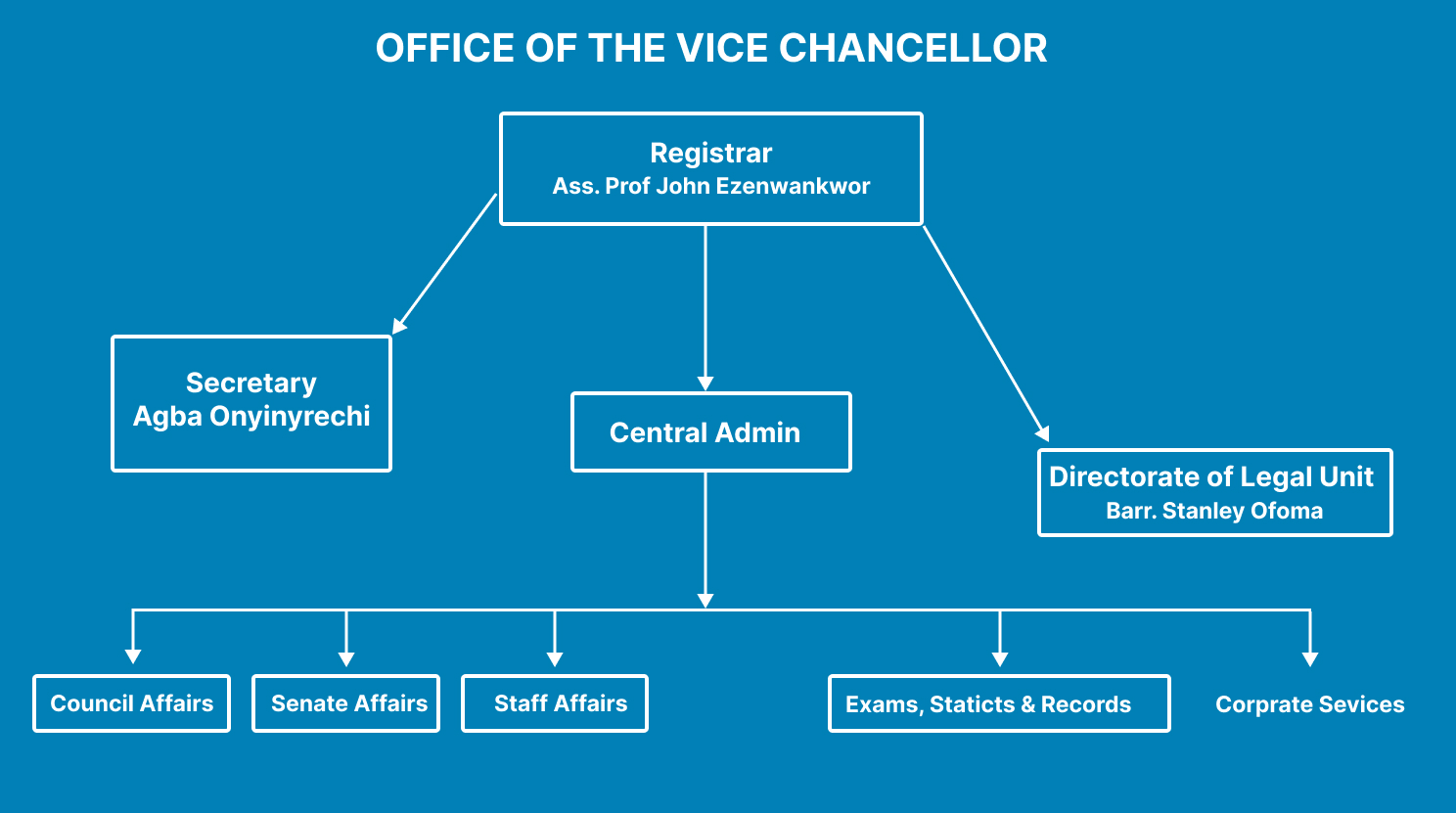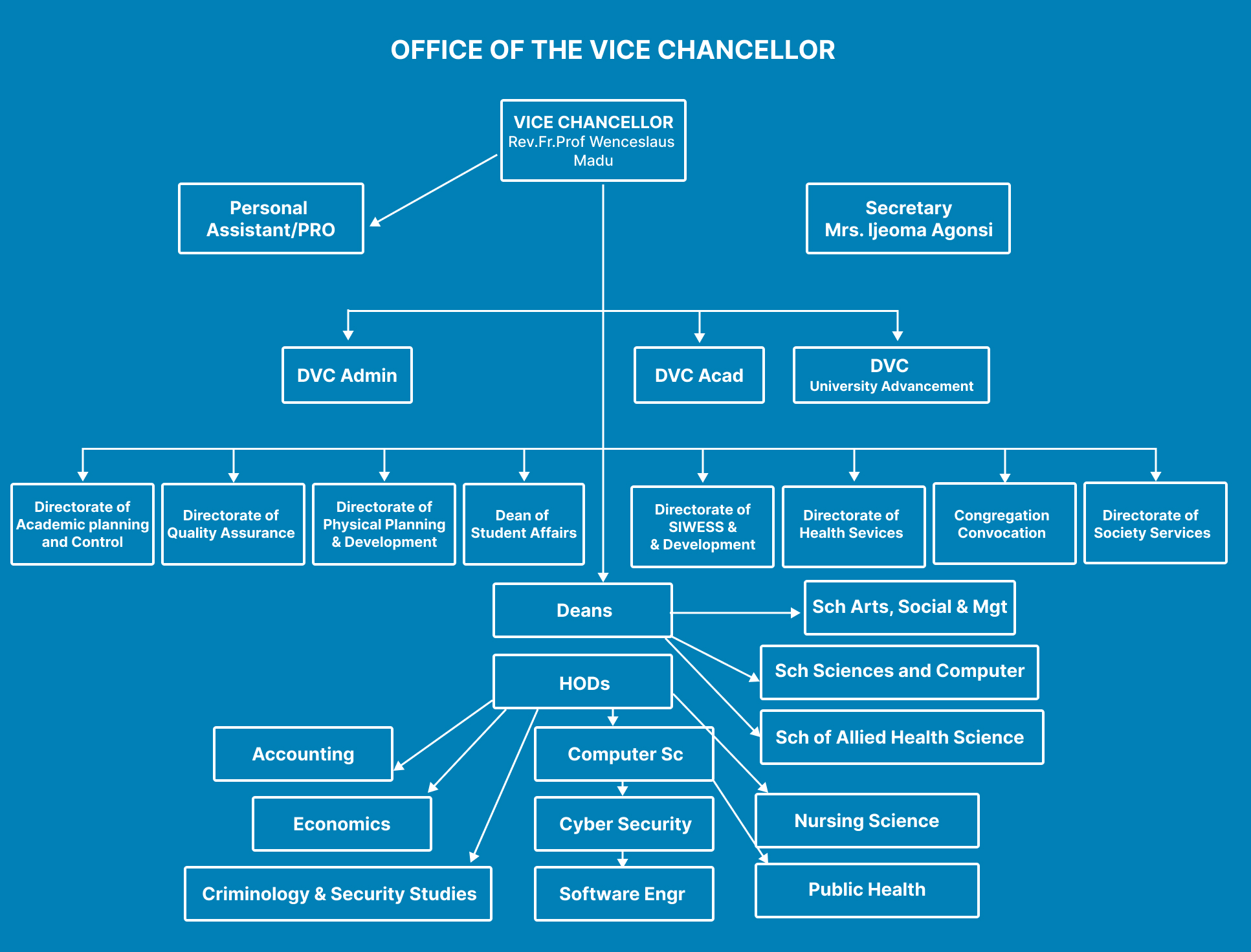The Claretian University of Nigeria (CUN) is a private institution
established by the Claretian University Education Foundation of the
Claretian Missionaries of Nigeria. The establishment of the University is
a direct response to the burning need for more credible tertiary
institutions to address the yearnings of the teeming youths of Imo
State and the broader Southeastern Nigeria desiring for qualitative
third level education
The Congregation of the Claretian Missionaries has as its founder Saint Anthony Mary Claret, who was born on 23 December 1807, in Sallent, Catalonia, Spain. The son of a Catholic family, who was formed in the Christian teachings and, since he was a child, wanted to be a missionary for the proclamation of the Gospel and salvation for all mankind. He was ordained a priest in the year 1835 and always took a style of missionary life, passed from city to city preaching the kingdom of God. The goal of the Congregation is to announce, by all possible means, in the Missionary Service of the Word, the gospel of Jesus Christ to the whole world. Initially, he devoted himself exclusively to missionary service, and subsequently was assuming other apostolic activities including parishes, education (schools, colleges, Universities, formation of the laity, pastoral agents and volunteers), missions, the means of social communication, social and promotional works, etc.
It is on record that Imo State has the highest number of candidates who participate in Joint Admission and Matriculation Board (JAMB) Examination annually for the past six years. Hence, an additional educational institution like the Claretian University is a plus for the state in solving its urgent educational needs
LOCATION OF THE UNIVERSITY
The Claretian University shall be a multi-campus institution with three campuses.
The takeoff campus is located on a 21.597 ha land in Nekede, Owerri West Local
Government Area, Imo State. This campus is well developed and presently houses
an affiliate institution to the Imo State University, Claretian Institute of
Philosophy. The University also has a 13.047 ha campus at Owerri Nkwoji, Nkwerre
Local Government Area and an 85.530 ha campus at Abba, Nwangele Local
Government Area it has also another 5.6 ha of land and 200 bed hospital at
Umudugba in Isu LGA. The address of the University shall be:
Claretian University of Nigeria
Maryland Nekede
Imo State - Nigeria.
THE PROPRIETOR
The Proprietor of the Claretian University of Nigeria is the Claretian Missionary
Fathers through its subsidiary CUEF represented by the Superior General of the
Claretian Missionaries
Vision The vision of the Claretian University of Nigeria is 'to be a front-runner institution in the discovery, dissemination and application of new knowledge in various disciplines for the development of self and of society'.
MISSION
The mission of the Claretian University is 'to provide excellent and conducive
environment for teaching, learning, research, and service that shall be renowned,
distinguished and attractive nationally and internationally'.
PHILOSOPHY
The philosophy of the Claretian University is thus encapsulated in the
University Motto: 'Securing the future through Education'.
The central themes that embody this philosophy include to:
i. become a leader in academia, research and technology transfer in Nigeria and beyond;
ii. create a community and an environment for learning and learners;
iii. use current and futuristic technologies in teaching so that students can favourably
compete with peers anywhere in the world; and
iv. produce morally sound graduates of distinction and exemplary character.
OBJECTIVES
The University law establishing the Claretian University of Nigeria has outlined
its objectives aimed at meeting its vision and mission. The objectives of the
Claretian University are to:
i. provide a wide range of quality learning opportunities for undergraduate and postgraduate students
without distinction of race, creed, sex, religion or political conviction that will enhance their best
intellectual, social, economic and personal development;
ii. provide academic, professional and vocational training of high quality in a way as to enrich
and improve the state, national and international human resource capabilities and assist its graduates to
contribute to the common good of society;
iii. foster academic research, which contributes to human knowledge and the vitality of the institution;
iv. encourage thoughtful and responsible staff and student participation in local, state, national and
international affairs;
v. maintain the highest academic standards in respect of University degrees and other awards and
preserve and protect their reputation and integrity;
vi. evolve academic programmes to suit the changing social and economic needs of society through
continuous review of curricula and development of new programmes to respond to societal and technological
changes in Nigeria and the world in general and Imo State in particular;
vii. advance human culture and improve human life through the development, refinement and dissemination
of knowledge and to prepare competent graduates to meet the development needs of Imo State in particular
and Nigeria in general; and
viii. relate its activities to the social, cultural and economic needs of the people of Imo State and Nigeria.
ORGANIZATIONAL STRUCTURE
INTRODUCTION
The Claretian University shall be a traditions-based institution, where democratic traditions
are established and maintained through orderly succession of leadership at various levels of
the organization. Moreover, continuity of policies and procedures will be enshrined in the
University Law, Statutes and Regulations. There shall be faith in the Committee System of
administration, institutional autonomy and individual academic freedom of enquiry.
Such traditions shall significantly shape the character and management style of the
proposed University
PROPRIETOR
The Proprietor of the Claretian University of Nigeria is the
Claretian Missionary Fathers through its subsidiary CUEF represented by
the Superior General of the Claretian Missionaries.
The organizational structure of the proposed Claretian University shall
follow the major organizational structure in Nigerian Universities.
The organizational structure of the proposed University shall be tiered
comprising statutory organs and University officials. The major components
of the organizational structure of the Claretian University will include:
Governance Structure of the Claretian University

OFFICE OF THE VICE CHANCELLOR

OFFICE OF THE REGISTRAR

Research focus of the University:
Claretian Centre of Excellence in the promotion of Indigenous knowledge and technology through
its school of Agriculture and Public Health aims at creating novelties for patenting.
This includes:
i. Storage and processing of roots, tuber, fruits and vegetable crops.
ii. Dry season vegetable production.
iii. Alternative sources of livestock feeds and organic fertilizer
Soon the University will publish the breakthroughs in our research efforts. Some of them may be patented.